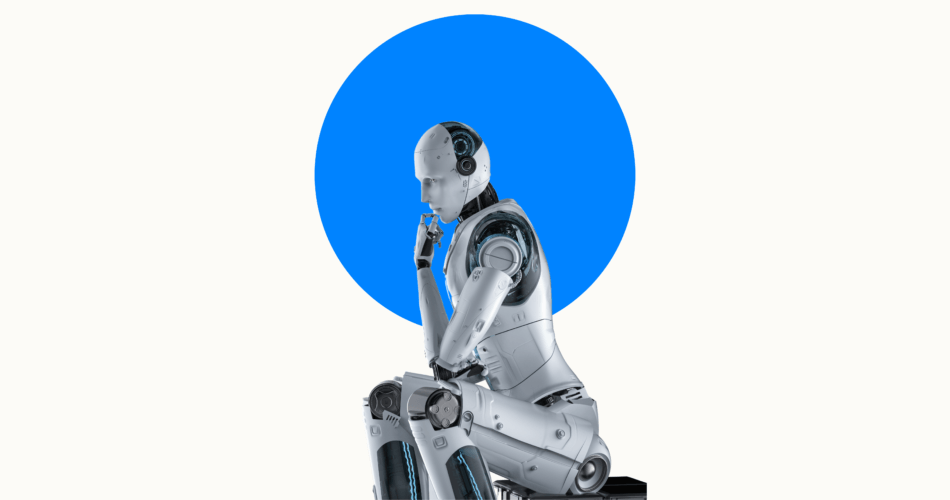
Are you passionate about artificial intelligence (AI)? Do you want to break free from the traditional 9-to-5 grind and chart your own path in the world of AI? Well, you’re in the right place! Freelancing in AI can be a thrilling journey filled with opportunities, challenges, and the potential for significant financial rewards. In this comprehensive guide, we’ll walk you through everything you need to know to build a thriving career as an independent AI contractor.
Why Choose Freelancing in AI?
Question: Why should you consider freelancing in AI over a conventional job in the field?
Answer: Freelancing in AI offers a unique set of advantages that can truly set your career on fire. Here’s why:
- Autonomy and Flexibility: In the world of freelancing, you are the boss. You get to set your own hours, choose your projects, and work from wherever you please. Say goodbye to the rigid office schedule and hello to a life of flexibility.
- Diverse Project Portfolio: As a freelancer, you have the opportunity to work on a wide range of projects across various industries. Whether it’s healthcare, finance, or entertainment, AI is everywhere, and your skills can be in high demand.
- Increased Earning Potential: No more fixed salaries. Freelancers often earn more than their salaried counterparts. With AI being a sought-after skill, you can command a premium for your expertise.
- Continuous Learning: In the AI world, learning never stops. Freelancing exposes you to different challenges and keeps your skills sharp. It’s a dynamic field, and you’ll always be at the forefront of innovation.
Getting Started: Setting Up Your Freelance AI Career
Question: How do you kickstart your journey as an independent AI contractor?
Answer: It’s time to roll up your sleeves and get started:
- Master Your AI Skills: Before you can freelance, you need to be a proficient AI practitioner. Hone your skills in machine learning, deep learning, natural language processing, and computer vision.
- Build a Stellar Portfolio: Your portfolio is your calling card. Create projects to showcase your skills. From image recognition apps to chatbots, your portfolio should reflect your versatility.
- Network, Network, Network: In the freelance world, connections are gold. Attend AI conferences, join online forums, and connect with professionals in the field. You never know where your next opportunity might come from.
- Choose Your Niche: AI is vast. Specializing in a niche, whether it’s recommendation systems, autonomous vehicles, or healthcare AI, can make you a sought-after expert.
The Freelancer’s Toolbox: Essential Resources

Question: What tools and resources are essential for a freelance AI contractor?
Answer: Here’s a handy list:
- Development Tools
| Tool | Description |
| Python | The go-to language for AI development. |
| TensorFlow | An open-source machine learning framework. |
| Jupyter Notebook | Ideal for prototyping AI projects. |
| Git | Version control for your code. |
- Online Learning Platforms
| Platform | Features |
| Coursera | Offers AI courses from top universities. |
| edX | Provides access to AI courses and certifications. |
| Udemy | A vast marketplace of AI-related courses. |
- Collaboration Tools
| Tool | Purpose |
| Slack | For communication with clients and teams. |
| Trello | Helps manage project tasks and deadlines. |
| Zoom | Essential for virtual meetings and presentations. |
Finding Your First AI Freelance Gig
Question: Where can you find your first freelance AI project?
Answer: Landing your first gig can be daunting, but these platforms can be your launchpad:
- Upwork: Upwork is a freelancing marketplace where you can bid on AI projects posted by clients. Create a compelling profile, showcase your skills, and start bidding.
- com: Similar to Upwork, Freelancer.com offers a platform for freelancers to connect with clients. It hosts a wide variety of AI-related projects.
- Toptal: Toptal is known for its exclusive network of freelancers. They connect top AI talent with high-profile clients. It’s competitive but rewarding.
- LinkedIn: Don’t underestimate the power of LinkedIn. Regularly update your profile, engage with AI-related content, and connect with potential clients.
Nurturing Client Relationships
Question: How can you build strong and lasting relationships with your AI clients?
Answer: Building rapport is key to your success. Here’s how:
- Effective Communication: Clear and timely communication is vital. Understand your client’s needs, provide updates, and be responsive to their queries.
- Deliver Quality Results: Consistently delivering high-quality work is the best way to earn repeat business and referrals. Go the extra mile to exceed expectations.
- Be Professional: Treat your freelance work like a business. Have contracts in place, meet deadlines, and handle finances professionally.
Managing Finances: Taxation and Invoicing
Question: How do you navigate the financial side of freelancing in AI?
Answer: Don’t let taxes and invoicing stress you out. Here’s a quick guide:
- Taxation: Freelancers often have complex tax situations. Consider hiring a tax professional to help you navigate deductions and payments.
- Invoicing: Use professional invoicing software like FreshBooks or QuickBooks to send detailed invoices. Keep records of all transactions for tax purposes.
Scaling Your Freelance AI Business

Question: How can you grow your freelance AI career into a thriving business?
Answer: Scaling up is the ultimate goal. Here’s your roadmap:
- Hire Assistants: As your workload increases, consider hiring virtual assistants or junior AI developers to help with tasks like data preprocessing or model testing.
- Diversify Your Services: Offer a broader range of AI services to attract a wider client base. This might include consulting, training, or custom AI solutions.
- Build a Brand: Invest in personal branding. A strong online presence can attract more clients and help you charge premium rates.
- Collaborate with Agencies: Partnering with marketing or development agencies can provide a steady stream of AI projects.
Overcoming Freelancing Challenges
Question: What challenges might you face as a freelance AI contractor, and how can you overcome them?
Answer: Freelancing isn’t all sunshine and rainbows. Here are some hurdles you might encounter and how to tackle them:
- Feast or Famine Workload: Freelancers often experience fluctuations in workload. Use lean times for professional development and marketing.
- Client Dependence: Relying on one major client can be risky. Diversify your client base to reduce dependency on a single income source.
- Burnout: Don’t overextend yourself. Manage your workload and take breaks to avoid burnout.
- Keeping Up with AI Advancements: The AI field evolves rapidly. Allocate time for continuous learning to stay relevant.
The Thrilling Journey of Freelancing in AI
Freelancing in AI is not just a career choice; it’s an adventure. You have the chance to shape the future, work on exciting projects, and enjoy the freedom of being your own boss. Remember, success in freelancing requires dedication, continuous learning, and a commitment to delivering value to your clients.
So, are you ready to embark on this exhilarating journey? The world of AI is waiting for you to make your mark as an independent AI contractor. Seize the opportunity, learn, network, and watch your freelance career soar to new heights in the dynamic and promising realm of artificial intelligence.
Frequently Asked Questions (FAQ) – Freelancing in AI
- What is freelancing in AI, and how does it differ from a traditional AI job?
Answer: Freelancing in AI involves working independently as a contractor on AI-related projects, often on a temporary basis. It differs from traditional AI jobs in that you have more autonomy, can choose your projects, and have a flexible work schedule.
- Do I need formal education to become a freelance AI contractor?
Answer: While formal education can be beneficial, it’s not always a strict requirement. What’s crucial is a deep understanding of AI concepts and practical skills. Many successful freelance AI contractors have diverse educational backgrounds.
- How do I find my first AI freelance gig?
Answer: You can find freelance AI projects on platforms like Upwork, Freelancer.com, Toptal, and even through networking on LinkedIn. Building a strong portfolio and showcasing your skills will make it easier to land your first project.
- What are the essential tools for a freelance AI contractor?
Answer: Essential tools include programming languages like Python, AI libraries/frameworks such as TensorFlow, development environments like Jupyter Notebook, version control with Git, and collaboration tools like Slack and Trello.
- How do I manage finances and taxes as a freelance AI contractor?
Answer: Consider hiring a tax professional to help with tax planning and payments. Use invoicing software to keep track of your income and expenses, and keep detailed records for tax purposes.
- What should I do if I experience a workload imbalance (feast or famine) as a freelancer?
Answer: During slow periods, focus on professional development, marketing your services, and building your network. Use busy times to maximize earnings and consider outsourcing tasks when possible.
- How can I stay up-to-date with the latest AI advancements as a freelancer?
Answer: Allocate time for continuous learning. Online courses, AI conferences, and reading research papers are great ways to stay updated. Networking with peers in the field also helps.
- What is the key to building strong client relationships as a freelance AI contractor?
Answer: Effective communication, delivering high-quality results, and professionalism are vital. Understand your client’s needs, meet deadlines, and be responsive to their feedback and inquiries.
- How can I scale my freelance AI business into a thriving career?
Answer: Consider hiring assistants, diversifying your services, building a personal brand, and collaborating with agencies. These steps can help you grow from a freelancer to a thriving independent AI contractor.
- Is freelancing in AI a stable career choice?
Answer: Freelancing in AI can be stable, but it’s essential to manage your workload, finances, and client base effectively. Building a diverse client portfolio and continuously improving your skills can contribute to long-term stability.